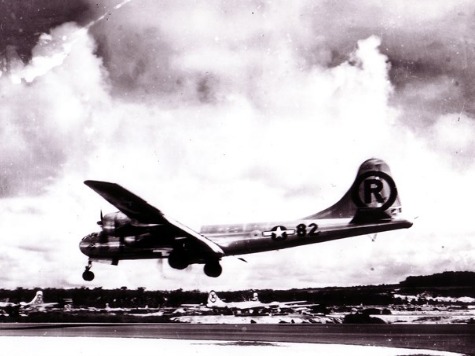Slightly after midnight on May 25, 1945, B-29 bombardier Scott Downing and his crew dropped their incendiary ordinance on Tokyo and banked northeast to return to the US base. That is when their plane was hit by either a Japanese fighter or Japanese anti-aircraft fire, forcing the entire crew to bail out.
After parachuting through a night sky that was well lit by the fires of Tokyo, Downing landed 15 miles outside the city. There, he buried his .45 pistol and hid out for “about two minutes” before being captured by farmers who had watched him falling through the air.
Once captured, Downing was delivered to a POW prison somewhere in the vicinity of the Japanese Western Army headquarters. He would not be liberated until August 29, 1945.
In an exclusive interview, the bombardier gave us but a glimpse at the price he paid for freedom:
There were six stables in the barn. Each had been boarded up so that all windows and openings were covered and any half walls had been turned into full ones. The stables were now cells. Although they measured less than eight by twelve feet in diameter, Downing and 18 other POWs were crammed into one of them for months. Conditions were so tight that when everyone would lie down to sleep, the only way to turn over was to stand in place, turn, and then lie back down.
Downing said that in one of the corners of the cell by an outside wall there “was a four-by-four foot concrete slab raised about four inches above floor level—there was a hole in the slab with a wooden lid on it.” The prisoners stood or squatted over this hole to relieve themselves throughout their captivity. The hole was also part of the area on which they slept, so they rotated positions every day to give each prisoner the task of sleeping over that hole every 19th day.
Throughout his captivity, Downing was fed one ball of rice a day. He said the cell guard would open the door and roll the rice balls across the floor to the prisoners. At the beginning of his captivity, this ball of rice was about the size of a baseball. As the end of the war drew closer, it shrank closer to the size of a golf ball. Downing said the POWs would each eat their own rice and then, those who were physically able would get on their hands and knees and lick the floor of the cell–using their tongues to pick up kernels that had lodged in the wooden planks as the rice balls rolled across the floor.
For roughly 93 days Downing existed like this–falling from a weight of 165 pounds at the time of capture to around 120 pounds when liberated. And he spent nights in that cell listening to fellow POWs–some of whom had been severely burned–struggle to take one more breath before their breathing stopped altogether or before a guard rushed in and dragged them away, never to be seen again.
When Mr. Downing talked about these things 60 years after-the-fact, he always stressed that he and his fellow POWs were simply doing their duty.
Breitbart News honors Scott Downing and his fellow captives this Veterans Day–men whose “duty” included being caged like animals so others could be free.
Follow AWR Hawkins on Twitter @AWRHawkins Reach him directly at awrhawkins@breitbart.com.

COMMENTS
Please let us know if you're having issues with commenting.